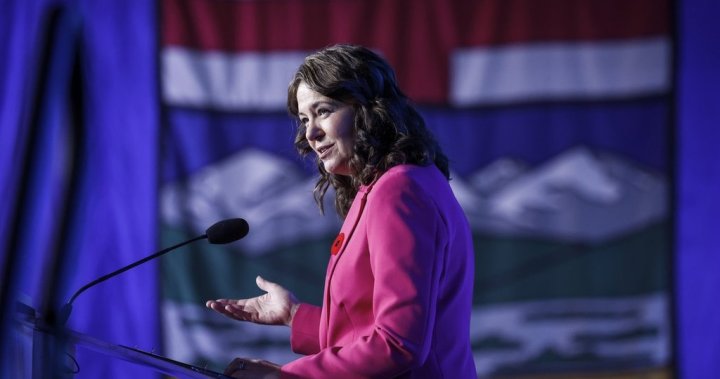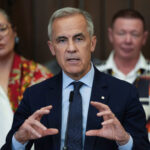In a surprising escalation of provincial-federal tensions, Alberta Premier Danielle Smith has rekindled the contentious debate over Alberta separatism, suggesting that a Liberal victory in the next federal election could push the province to consider independence. Speaking at a recent fundraising event in Calgary, Smith’s remarks have sent ripples through Canadian political circles, igniting passionate discussions about western alienation and provincial autonomy.
“If there’s another Liberal government, I think we’re going to see a renewed call for Alberta independence,” Smith told supporters, her voice steady but resolute. “It’s something I’ve been hearing increasingly from constituents who feel Ottawa has abandoned Alberta’s economic interests.”
The Premier’s comments come amid growing frustration in Alberta over federal policies affecting the province’s energy sector, including environmental regulations that many Albertans view as disproportionately targeting their economic backbone. This sentiment has been brewing for years, with the Alberta Sovereignty Act serving as Smith’s legislative attempt to shield the province from federal laws deemed harmful to Alberta’s interests.
Political analysts suggest Smith’s rhetoric may be calculated to strengthen her position within the United Conservative Party, where she faces challenges from both moderate and more right-wing factions. Dr. Melissa Thornton, professor of political science at the University of Calgary, notes that “Smith is walking a delicate tightrope between appealing to sovereignty-minded supporters while not alienating mainstream conservatives who may balk at separation talk.”
The historical context cannot be ignored. Alberta’s relationship with Ottawa has been fraught with tension since the implementation of Pierre Trudeau’s National Energy Program in the 1980s. The program, which many Albertans viewed as federal overreach into provincial resources, sparked the first significant separatist movement in the province and continues to influence political discourse decades later.
Federal Liberal ministers have dismissed Smith’s comments as “dangerous political posturing.” Finance Minister Chrystia Freeland responded by emphasizing the economic benefits Alberta receives from being part of Canada, citing preferential access to markets through federal trade agreements and infrastructure funding.
“This kind of rhetoric damages not just national unity but Alberta’s economic prospects,” Freeland stated at a press conference in Ottawa. “International investors want stability, not separatist threats.”
Economic experts point out that Alberta’s integration with the national economy runs deep. The province’s energy exports rely heavily on national infrastructure, and any separation would raise complex questions about currency, trade relationships, and debt obligations. A 2021 study by the Canada West Foundation estimated that Alberta’s GDP could contract by up to 25 percent in the immediate aftermath of separation.
However, Smith’s supporters argue that the province’s $73 billion contribution to federal coffers between 2007 and 2018—money they claim wasn’t reciprocated in federal spending—justifies their grievances. Todd McKay, spokesperson for the Canadian Taxpayers Federation’s Alberta chapter, asserts that “Albertans feel like they’re sending a fortune to Ottawa and getting disrespect in return.”
The implications of Smith’s rhetoric extend beyond Alberta’s borders. In Saskatchewan, Premier Scott Moe has expressed solidarity with Alberta’s concerns while stopping short of endorsing separatism. Meanwhile, business leaders across western Canada worry that separation talk could deter investment at a time when economic diversification is crucial.
As this debate unfolds, the question remains: Is Smith truly concerned about Alberta independence, or is this a calculated political strategy to solidify her base ahead of provincial and federal elections? And perhaps more importantly, how might this rhetoric permanently alter the fabric of Canadian federalism in ways that will affect generations to come?











